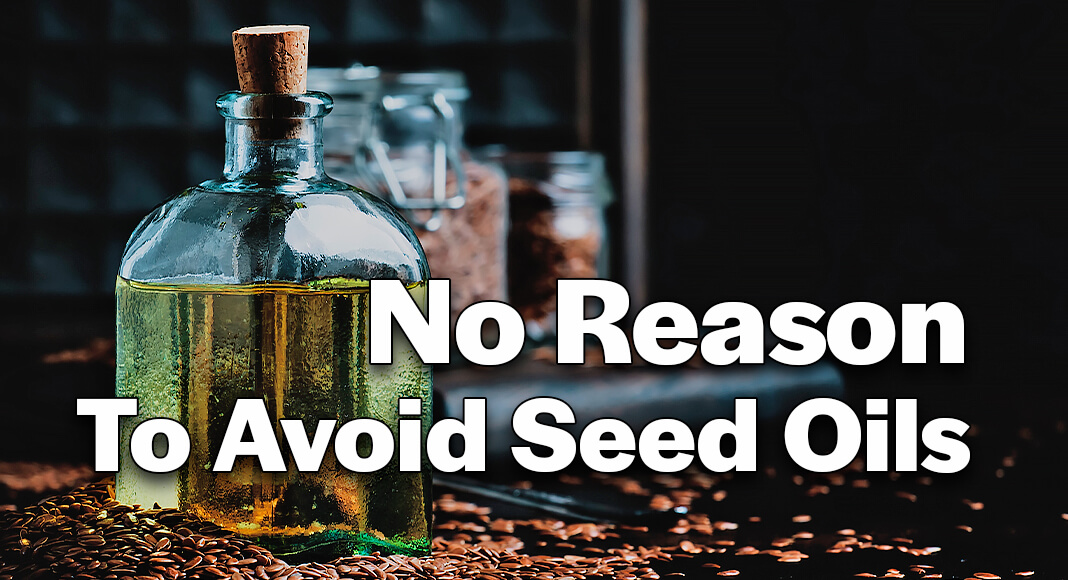
Mega Doctor News
By Laura Williamson, American Heart Association News
The “Hateful Eight” may sound like an old-time Western movie, but this showdown doesn’t involve cowboys or horses or even guns. It’s a battle over the supposed dangers posed by eight seed oils – canola, corn, cottonseed, grapeseed, soy, rice bran, sunflower and safflower – and it’s being fought on social media.
To listen to some people on TikTok, YouTube or any of a number of podcasts, the oil extracted from these plants is poisoning us. But is it, really?
“It’s so odd that the internet has gone wild demonizing these things,” said Dr. Christopher Gardner, a professor of medicine at Stanford University School of Medicine in California and a nutrition scientist at the Stanford Prevention Research Center. “They are not to be feared.”
The misleading charge is that seed oils are high in omega-6 fatty acids that break down into toxins when used for cooking, causing inflammation, weakening the immune system, and contributing to chronic illnesses.
That argument is flawed in numerous ways, Gardner said.
First, while seed oils do contain high levels of omega-6 fatty acids, that’s not a bad thing. Omega-6 is a polyunsaturated fat the body needs but cannot produce itself, so it must get it from foods. Polyunsaturated fats help the body reduce bad cholesterol, lowering the risk for heart disease and stroke. The American Heart Association supports the inclusion of omega-6 fatty acids as part of a healthy diet.
Omega-6 gets unfairly demonized because it appears to play a smaller role in reducing cardiovascular risk than omega-3, another polyunsaturated fat also found in some plant oils, as well as fish, Gardner said. The Western diet typically includes much higher amounts of omega-6 fatty acids than omega-3s, but research on the optimal balance between the two remains unclear.
That doesn’t mean omega-6 is bad for you, Gardner said. “It’s just that omega-3s are better.”
And while omega-6 is pro-inflammatory, the amount of inflammation it’s associated with has not been shown to be harmful, he said.
Critics say people often don’t realize they’re eating seed oils because of the many processed foods that contain them. Gardner said the real concern should be overeating ultra-processed foods, which may contain harmful ingredients such as high-fructose corn syrup, added sugar and sodium.
Seed oils aren’t the problem in those foods, he said. “It’s hard to cast the blame on the seed oils when these foods contain so many other things.”
Negative buzz also surrounds the way seed oils are typically produced. Rather than simply pressing the seeds to extract the oil – the way olives are pressed to produce olive oil – seeds go through processing to extract their oils.
However, if people use seed oils to cook or complement otherwise healthy meals – such as stir-frying vegetables with sesame oil or lightly dressing a salad with sunflower oil – the benefits far outweigh any potential health risks, Gardner said.
“People are cooking with these oils, not drinking them,” he said. “In a situation where you need some kind of fat for cooking or food preparation, you can use plant oils or you can use butter or lard. Very consistently, all the data say butter and lard are bad for our hearts. And studies show swapping out saturated fats and replacing them with unsaturated fats lowers the risk for heart disease.”
While it may be preferable to cook with olive oil – a key component of the Mediterranean diet, which studies have consistently associated with a lower risk for cardiovascular disease – that’s not going to add the right flavor to every type of food, Gardner said. When making a vegetable stir-fry, for example, he said he would use toasted sesame oil.
“And if it means that because you did that, that you’re going to have the veggie stir-fry and the salad and you’re going to eat more of it because of the flavor? Fantastic,” he said. “The seed oils are not killing you. They are helping you enjoy more healthy foods.”
Eat It or Leave It? is an American Heart Association News series that takes a closer look at the health benefits and drawbacks of specific foods and drinks.










